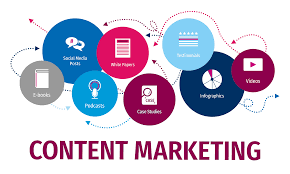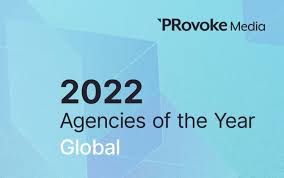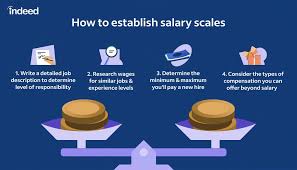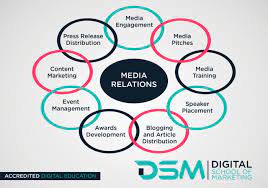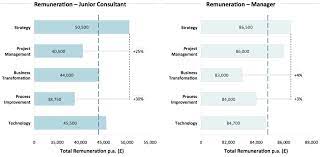Mastering the Art of Public Relations: Building Strong Brand Relationships
The Power of Public Relations in Building Strong Brands
Public relations (PR) plays a crucial role in shaping the image and reputation of a company or individual. It involves managing communication between an organization and its target audience to build trust, credibility, and positive relationships.
One of the key benefits of PR is its ability to create brand awareness and visibility. By effectively communicating with the media, influencers, and the public, PR professionals can help companies reach a wider audience and establish themselves as industry leaders.
PR also helps in managing crises and handling negative publicity. In times of crisis, a well-executed PR strategy can help mitigate damage to a brand’s reputation and maintain stakeholder trust. By being proactive and transparent in communication, companies can navigate challenging situations more effectively.
Building strong relationships with the media is another essential aspect of PR. Securing positive media coverage can enhance brand credibility and influence public perception. PR professionals work closely with journalists to pitch stories, arrange interviews, and generate press releases that highlight the strengths of a brand.
Furthermore, PR is instrumental in creating thought leadership opportunities for businesses. By positioning key executives as experts in their field through speaking engagements, articles, and interviews, PR helps establish credibility and authority within the industry.
In today’s digital age, online PR has become increasingly important. Social media platforms and digital channels provide new opportunities for brands to engage with their audience directly. PR professionals leverage these channels to share compelling stories, engage with followers, and monitor online conversations about the brand.
In conclusion, public relations is a powerful tool for building strong brands in today’s competitive market. By crafting compelling narratives, fostering positive relationships with stakeholders, managing crises effectively, and leveraging digital platforms for engagement, PR professionals play a vital role in enhancing brand reputation and driving business success.
7 Essential Tips for Effective Public Relations Management
- Establish clear communication objectives before starting any PR campaign.
- Build and maintain relationships with key stakeholders, including media contacts and influencers.
- Monitor and track media coverage to gauge the effectiveness of your PR efforts.
- Be proactive in managing any potential crises that may arise to protect your organisation’s reputation.
- Utilise social media platforms effectively to engage with your target audience and amplify your message.
- Stay up-to-date with current events and trends to ensure your PR strategies remain relevant and timely.
- Measure the impact of your PR activities through metrics such as brand awareness, website traffic, and lead generation.
Establish clear communication objectives before starting any PR campaign.
Establishing clear communication objectives before launching any PR campaign is essential for its success. By defining specific goals and outcomes from the outset, PR professionals can align their strategies and tactics to effectively reach their target audience and deliver the desired results. Clear objectives provide a roadmap for the campaign, guiding decision-making and ensuring that efforts are focused on achieving measurable outcomes. Whether the goal is to increase brand awareness, enhance reputation, drive website traffic, or generate leads, having well-defined communication objectives sets the foundation for a strategic and impactful PR campaign.
Build and maintain relationships with key stakeholders, including media contacts and influencers.
Building and maintaining relationships with key stakeholders, such as media contacts and influencers, is a fundamental tip in the field of public relations. By nurturing these connections, PR professionals can effectively disseminate brand messages, secure positive media coverage, and leverage influential voices to enhance brand visibility and credibility. Establishing strong relationships with stakeholders ensures that the organisation remains top-of-mind and well-positioned within its industry, ultimately contributing to long-term success and reputation management.
Monitor and track media coverage to gauge the effectiveness of your PR efforts.
Monitoring and tracking media coverage is a crucial tip in public relations as it allows businesses to assess the impact of their PR efforts. By keeping a close eye on how their brand is being portrayed in the media, companies can gain valuable insights into the reach and sentiment of their messaging. Tracking media coverage enables PR professionals to measure the success of their campaigns, identify areas for improvement, and make informed decisions to enhance their overall communication strategy. This proactive approach helps businesses stay ahead of the curve and adapt their PR tactics to achieve desired results effectively.
Be proactive in managing any potential crises that may arise to protect your organisation’s reputation.
Being proactive in managing any potential crises that may arise is essential to safeguarding your organisation’s reputation. By anticipating and preparing for possible challenges, you can respond swiftly and effectively to mitigate negative impacts on your brand. Proactive crisis management allows you to maintain transparency, communicate openly with stakeholders, and demonstrate your commitment to resolving issues responsibly. This approach not only helps protect your organisation’s reputation but also builds trust and credibility with your audience.
Utilise social media platforms effectively to engage with your target audience and amplify your message.
Utilising social media platforms effectively is a key tip in public relations to engage with your target audience and amplify your message. By leveraging the power of platforms such as Facebook, Twitter, Instagram, and LinkedIn, companies can interact directly with their audience, share compelling content, and build a strong online presence. Engaging with followers through comments, likes, and shares not only helps in creating brand loyalty but also in increasing brand visibility and reach. Through strategic use of social media, businesses can enhance their communication efforts and connect with their audience in a more meaningful way.
Stay up-to-date with current events and trends to ensure your PR strategies remain relevant and timely.
To ensure the effectiveness of your PR strategies, it is crucial to stay informed about current events and trends. By keeping up-to-date with the latest news and developments, you can tailor your communication efforts to remain relevant and timely. Understanding the cultural landscape and industry trends allows PR professionals to craft messages that resonate with their target audience and respond swiftly to emerging opportunities or challenges. Stay connected to the pulse of the world around you to ensure that your PR initiatives are impactful and in tune with the ever-changing media environment.
Measure the impact of your PR activities through metrics such as brand awareness, website traffic, and lead generation.
To effectively gauge the effectiveness of your public relations efforts, it is essential to measure the impact through various metrics such as brand awareness, website traffic, and lead generation. By tracking these key performance indicators, you can gain valuable insights into how your PR activities are resonating with your target audience and contributing to your overall business goals. Monitoring brand awareness metrics can help you understand how well your messaging is reaching and engaging with the public. Analyzing website traffic data can provide insights into how PR campaigns are driving traffic to your online platforms. Additionally, measuring lead generation metrics can help you assess the direct impact of PR efforts on generating new business opportunities. By consistently monitoring these metrics, you can refine your PR strategies for optimal results and demonstrate the tangible value of public relations to your organisation.






